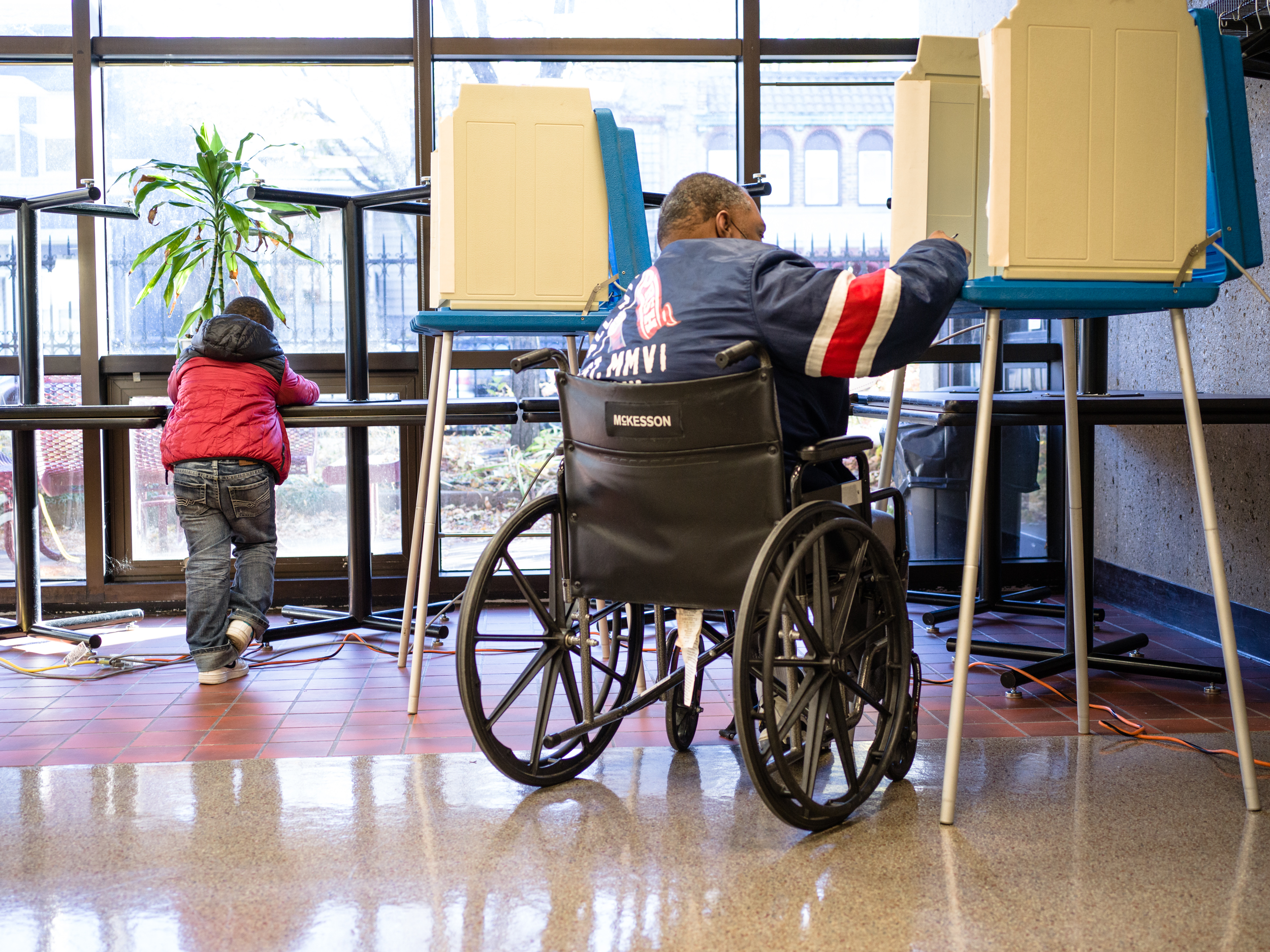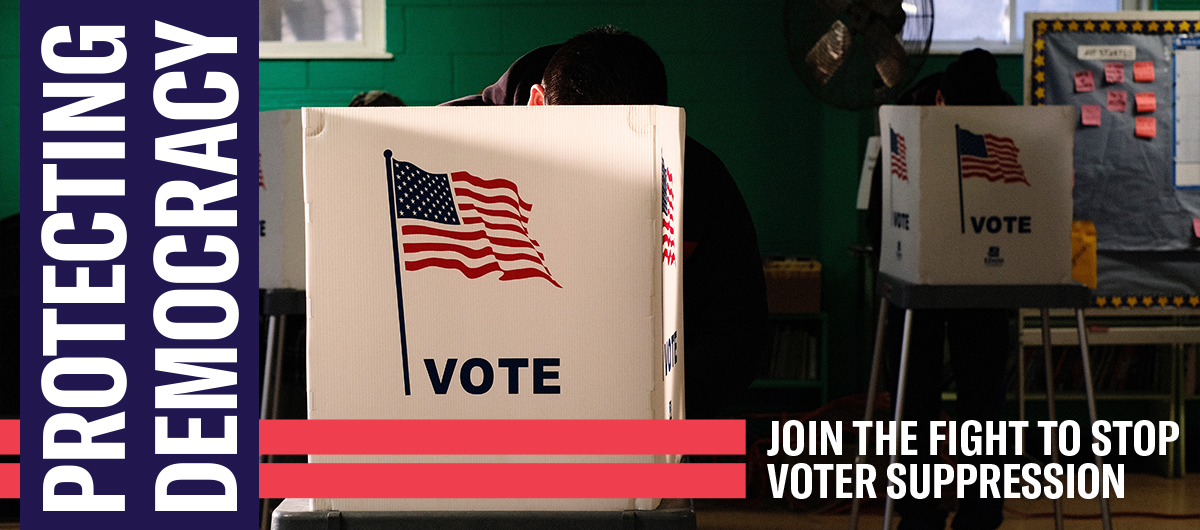TARGETING VULNERABLE VOTERS
Because of the work done by the ACLU of Michigan and our allies, our state has had a voter ID law that successfully balances voter access and election security for more than a decade. As it is now, anyone without a valid photo ID can cast a ballot if they sign an affidavit affirming their identity.
It's that simple. But the Republican-controlled Legislature proposes requiring anyone who fails to bring photo ID when voting at the polls to file a provisional ballot, forcing them to go their clerk's office within six days with their photo ID for their vote to count. If they have no photo ID, their vote isn't counted at all. Either way, requiring photo ID creates needless barriers, and mostly impacts vulnerable communities, including:
Black people and other people of color:
- Research shows that minority voters in Michigan are about five times more likely to lack access to ID than white voters.
- Voters living in 100 percent Black precincts were 16 times more likely to cast an affidavit ballot than voters living in precincts with no Black residents.
People living on low incomes:
- Even if photo IDs are offered for free or at a reduced cost, the underlying documents required to obtain ID cost money, and place a needless burden on people with low incomes.
- The cost of document fees, travel expenses and waiting time range from $75 to $175.
- Roughly half of the affidavit ballots cast were in precincts with a median household income of $34,680 or less.
People with disabilities, the elderly, students, and rural residents:
Members of these communities would be disproportionately burdened by the cost, travel time, loss of pay from work missed and lack of transportation if forced to go to their clerk's office after Election Day to have their vote count.
To review the full mailer click here.
Date
Monday, September 27, 2021 - 7:15amFeatured image

